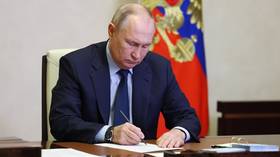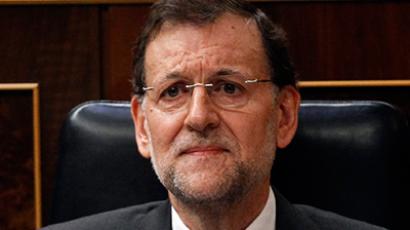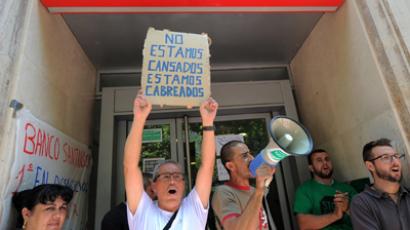Economy knackered: Recession sends thousands of Spanish horses to slaughter
The EU’s economic crisis is not only affecting people. Thousands of horses are being abandoned or slaughtered and processed into food in Spain, as families can no longer afford the upkeep of their nags in the country’s deepening recession.
Statistics recently released by Spanish media are shocking. ADN daily reports approximately 5,000 horses have been slaughtered each month in 2012. Another Spanish newspaper, El Día, says the number of slaughtered horses increased by 31 per cent in the first quarter of 2012 compared to the same period in 2011, with 19,793 horses killed for food.Reckless abandonment of horses has also been recorded. Virginia Solera from the CYD animal shelter says that the abandonment of horses actually increased by 80 per cent last year and shelters have been overwhelmed with the amount of homeless stallions and mares. “The number of horses we have to care for has increased dramatically with the crisis. People can’t afford to keep them and instead dispense with them. We find them in terrible condition, almost dead,” said caretaker Dilfenio Rodríguez from the Burrolandia animal shelter. “They eat their own excrement and drink rainwater to survive.”Poor economic conditions in Spain have been cited as the reasons for the dramatic situation.The upkeep of one horse amounts to about 300 euro a month, RT’s Aleksey Yaroshevsky reports. This is something that many families or horse-riding schools can no longer afford. Prize stallions are often being sold at almost half their value. A horse that once cost 12,000 euro now goes for 7,000 euro. Stable owner María Ruíz told RT that her own business is continuously losing money. “It’s good if we can at least cover our expenses, we’re afraid we might have to sell our horses to slaughterhouses, if we don’t find the means to survive,” she says.Aggravating the situation is government cuts to subsidies for animal shelters. As a result, many of them barely make ends meet and can no longer afford to take on the increasing inflow of abandoned horses, which puts more animals in direct danger of becoming food in this deepening recession.Most of the resulting horse meat ends up exported as the demand for it inside the country is rather low. “Horsemeat is not so popular with Spanish consumers, so it is usually exported abroad – to countries like Belgium, Italy, France and Russia. About 80 per cent is for human consumption, and 20 per cent is processed into animal food,” said Manuel González, a Spanish meat packer.















